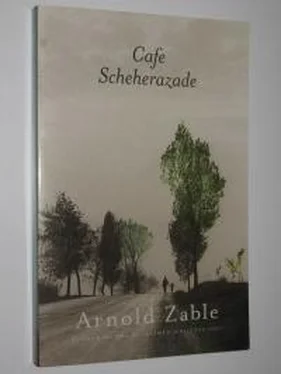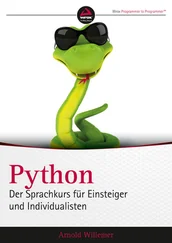Arnold Zable - Cafe Scheherazade
Здесь есть возможность читать онлайн «Arnold Zable - Cafe Scheherazade» весь текст электронной книги совершенно бесплатно (целиком полную версию без сокращений). В некоторых случаях можно слушать аудио, скачать через торрент в формате fb2 и присутствует краткое содержание. Город: Melbourne, Год выпуска: 2001, Издательство: Text Publishing Company, Жанр: Проза, на английском языке. Описание произведения, (предисловие) а так же отзывы посетителей доступны на портале библиотеки ЛибКат.
- Название:Cafe Scheherazade
- Автор:
- Издательство:Text Publishing Company
- Жанр:
- Год:2001
- Город:Melbourne
- ISBN:нет данных
- Рейтинг книги:4 / 5. Голосов: 1
-
Избранное:Добавить в избранное
- Отзывы:
-
Ваша оценка:
- 80
- 1
- 2
- 3
- 4
- 5
Cafe Scheherazade: краткое содержание, описание и аннотация
Предлагаем к чтению аннотацию, описание, краткое содержание или предисловие (зависит от того, что написал сам автор книги «Cafe Scheherazade»). Если вы не нашли необходимую информацию о книге — напишите в комментариях, мы постараемся отыскать её.
Cafe Scheherazade — читать онлайн бесплатно полную книгу (весь текст) целиком
Ниже представлен текст книги, разбитый по страницам. Система сохранения места последней прочитанной страницы, позволяет с удобством читать онлайн бесплатно книгу «Cafe Scheherazade», без необходимости каждый раз заново искать на чём Вы остановились. Поставьте закладку, и сможете в любой момент перейти на страницу, на которой закончили чтение.
Интервал:
Закладка:
Vilna, disintegrating into dust, and the intimacy of Scheherazade on a cold spring night.
"Sholem Aleichem."
"Aleichem Sholem."
"Here. Take a seat. What do you wish to order? A glass of borscht? Some barley soup?
"You speak a word of Yiddish? Mamme loschen? A little 170
Russian? Maybe Polish? What do you want for the main course? A plate of latkes? A chicken schnitzel or vegetable stew?
"And where are you from? Warsaw? Budapest? Crakow? Lublin?
Perhaps Vienna? Maybe Berlin? And what would you like for dessert? An apple compote? A plate of cheese? A cup of coffee? A lemon tea?"
"This is how it started to become the Scheherazade we know today," Masha tells me.
"We could not foresee what it would become," says Avram.
"We had no experience," adds Masha. "We had never been restaurateurs, chefs, business people, when we took over O'Shea's milk bar."
"Then the single men began to come, men who had lost their entire families in the Annihilation, some of whom had never remarried," says Avram. "Men who lived in one-bedroom flats, boarding houses, single rooms. And we responded to their tastes."
The word spread. The men gathered. Scheherazade answered their needs. Their numbers grew like a sprouting of seeds. They came in search of a Yiddish word, a familiar smile. This is what the survivors craved: a mother's touch, a friend's embrace.
Their longings determined Masha's cuisine. Slowly it returned, her recall of recipes, the ingredients she had helped her mother prepare on a wood-fuelled fire in a Siberian camp.
It began with simple dishes: a chicken broth, a Sabbath stew. The menu expanded. The clientele grew. Masha dashed between tables.
She ran upstairs to tend to her three children. She ran 171 downstairs to tend to her family of solitary men. Avram settled accounts, paid bills, dashed to communal meetings, and rushed back in time to serve supper, sweep the floors, lower the shutters and bolt the doors.
Masha had wanted to be a doctor. She wanted to pursue the future she had envisaged on her walks to a village school through the dust-clogged alleys of Merke. Avram had wanted to teach, to seek answers, to record his precious tales; but when they arrived in
Melbourne, they had to begin anew. They laboured in clothing factories. They advanced from a stint in a laundry and an abattoir, to late-night piecework and assembly lines; until they laid their eyes upon O'Shea's.
The milk bar became a coffee shop, the coffee shop a restaurant, the restaurant a meeting place, a refuge from the cold. In
Scheherazade survivors were regrouping, old worlds were being recreated, and festering wounds were being healed. Yet it would take the proprietors years to see the poetry of their venture.
Avram and his comrades retreated to the forests. They moved to an island in the Rudnicki swamps. They dug zemlankes, underground rooms, camouflaged with branches and leaves.
The shelters expanded. Avram and his comrades added a kitchen, a bakery and a sauna: a row of stones fuelled by burning wood. The steam provided relief from armies of lice, and drove them from their breeding grounds in shirts and 172 matted hair. The partisans drew water from underground springs. The hot stones heated the water into warm baths.
They assembled an arsenal, and a radio by which they received orders from central command. They waded through the swamps, on makeshift walkways, made out of branches and sand. They moved to enemy lines in small bands along forest tracks. They laid mines.
They blew up railway tracks. They cut down telegraph poles. They raided farmhouses, stole food and interrogated peasants. They became hardened fighters, men and women with their childhood barely behind them.
Avram recalls his initiation, the first assignment. They waded out of the swamps in the pre-dawn darkness, in the winter of
1943, a band of partisans fifteen strong, led by Rushke
Markowitz. She was twenty-two years old. They made their way to a rail siding. German guards spotted them as they moved across the tracks. Rushke and a comrade diverted the guards with their fire.
The rest of the band retreated as Rushke and her partner were killed.
In time, they became ruthless. There was a village of oxen and geese, and fowls squawking in the dust; with thatched cottages, wooden stables and horse-drawn carts. Its children played in windswept lanes. Its women tended their homes; its menfolk farmed. And stored arms which they used against both the German occupiers and Soviet-led partisans. The village stood on the edge of the forest. Partisans often passed nearby, to and from their raids. When they strayed too close, they were 173 attacked, and some were killed.
The order came from Moscow. The villagers were to be taught a lesson. A combined force of partisans was assembled, comprised of Russians and Poles, Lithuanians and Jews. They ringed the entire village. They blocked all escape routes.
They attacked at midnight. They set fire to the houses, the wagons, the fences and stables. The howl of burning animals rose above the crackle of bullets and flames. Horses, with manes ablaze, hurtled towards watering holes. The madness was contagious. The hunted had become the hunter.
Placid family men became indiscriminate killers. Once pious scholars bellowed for revenge. Boys screamed out the names of loved ones as they beat their captives to death. Partisan women became oblivious to the cries of children in the glow of lingering flames. Long before the darkness had given way to the dawn, not one village man, woman or child remained alive.
Again I hear the steel in Avram's voice. I see the young man of the swamps, smeared with mud and sweat. I hear the tale, and I do not judge. I cannot judge. All I can do is listen at the table in the back room, and allow the story to be told.
There were moments, however few, of respite. They would sit by a fire, and inhale the conifer-scented night. "After three years of powerlessness, we could decide our own fate," says Avram. "We were no longer helpless. We faced death with every step, but we had a measure of control over our lives.
174
"And there were the hours by the fire, after a successful raid.
We baked potatoes. We gazed at the glowing embers and flames. We sang Russian and Yiddish songs. We recalled fragments of our past lives and, to this day, when we meet, those who survived, those of us who settled in Melbourne or New York, in Jerusalem, Buenos Aires, Mexico City or Montreal, in cities scattered throughout the world, we feel a bond of love; and the scent of the past returns.
"In the swamps and forests we were kings. We lived by our instincts and wits. When the Luftwaffe planes circled overhead I-we would hide in the mud. They were too frightened to come by land.
We could remain invisible in the swamps for hours on end. We ate the grass and drank our own urine to ease our thirst. We learnt that everything can be turned to an advantage. When the planes dropped their bombs, they would get stuck in the mud. We would creep up, defuse them, take out the explosives, and use them in our mines."
As Avram speaks I see a radiance, born of freedom, of being able to defend oneself. I see him with his companions, seated on forest floors knotted with pine needles and cones. I hear the notes of a mouth organ, the chorus of a partisan song. I inhale the aroma of birches grazed with smoke. And I sense the ambiguities, the interplay of shadow and light.
As if he has intuited my thoughts, Avram adds, "In the forests we were like eagles. There were times when we could soar. But like eagles, to survive, we had to descend back to the mud, to the smell of death, and learn to stalk our prey. We had no option175
but to lower ourselves in the dirt in order to regain our wings."
Читать дальшеИнтервал:
Закладка:
Похожие книги на «Cafe Scheherazade»
Представляем Вашему вниманию похожие книги на «Cafe Scheherazade» списком для выбора. Мы отобрали схожую по названию и смыслу литературу в надежде предоставить читателям больше вариантов отыскать новые, интересные, ещё непрочитанные произведения.
Обсуждение, отзывы о книге «Cafe Scheherazade» и просто собственные мнения читателей. Оставьте ваши комментарии, напишите, что Вы думаете о произведении, его смысле или главных героях. Укажите что конкретно понравилось, а что нет, и почему Вы так считаете.












